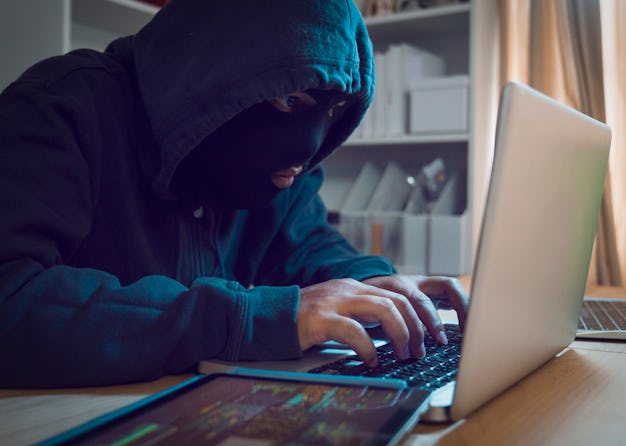Tech
The U.S. government just seized $1 billion in Silk Road loot

$1B
The approximate value of the bitcoin now in government hands.
The cryptocurrency community was pretty curious on election day when someone transferred nearly $1 billion worth of Bitcoin out of a dormant wallet, representing one of the single biggest transactions in the history of the digital currency. We now know that was the Department of Justice (DOJ) seizing proceeds from The Silk Road, the infamous dark web drug marketplace that it took offline in 2013.
Hiding in plain sight — The Silk Road was the most notorious "dark web" online marketplace where illegal drugs, weapons, and other nefarious goods were bought and sold. The U.S. government estimates that the website generated around 600,000 Bitcoins in commissions between 2012 and 2013, much of which went to Ross Ulbricht, the mastermind behind the website. Ulbricht is now serving a double life sentence, and when the website was taken offline by the FBI in 2013, more than 175,000 Bitcoins were seized from him. At today's price that's worth over two billion dollars. This week's grab was another 70,000 more.
The DOJ says it was assisted in seizing the Bitcoins by an unnamed hacker who broke into the Silk Road's payment system sometime in 2012 or 2013. Ulbrecht threatened the hacker unless they returned the cryptocurrency they stole, but the hacker refused.
“The successful prosecution of Silk Road’s founder in 2015 left open a billion-dollar question," said U.S. Attorney David L. Anderson. "Where did the money go? Today’s forfeiture complaint answers this open question at least in part. $1 billion of these criminal proceeds are now in the United States’ possession.”
Two sides — The collapse of the Silk Road captivated the world as it revealed that one of the world's most significant drug kingpins was an inconspicuous 29-year-old living in San Francisco, and not that different from any other computer nerd sporting the typical hoodie-and-jeans aesthetic.
As the story came out that Ulbricht had ordered pay-for-hire executions of Silk Road members who tried to blackmail him (that, granted, never transpired, in part because one of the contracted hitmen was actually a cop), it highlighted how there can be two sides to a person — they can at once be both outwardly kind-hearted individuals and simultaneously compartmentalize away offenses as a means to what they see as a greater good. Ulbricht was a libertarian who believed in decriminalizing drugs, ironically a movement that took hold during this election as Oregon decriminalized heroin, cocaine, and psilocybin, and New Jersey legalized marijuana.
It's possible that Ulbricht's compartmentalization was made easier by the fact that his criminality occurred exclusively in the digital sphere, away from the dirty reality of what he was doing to people on the other side of the screen.
Anonymity is a farce — Another valuable lesson from the Silk Road is that it's incredibly hard to remain genuinely anonymous online. Ulbricht was caught for the dumbest of reasons — the Silk Road used Tor, a service that helps mask the identity of a website server by bouncing requests through a series of "nodes." But he had a registration form on the Silk Road that wasn't set up to use Tor, meaning the form revealed the actual IP address where it was hosted.
The DOJ will likely now auction off the Bitcoins as it has done in the past, and the proceeds will be added to the agency's budget. Given at time of writing Bitcoin is trading at around $15,000, that's not a bad haul.